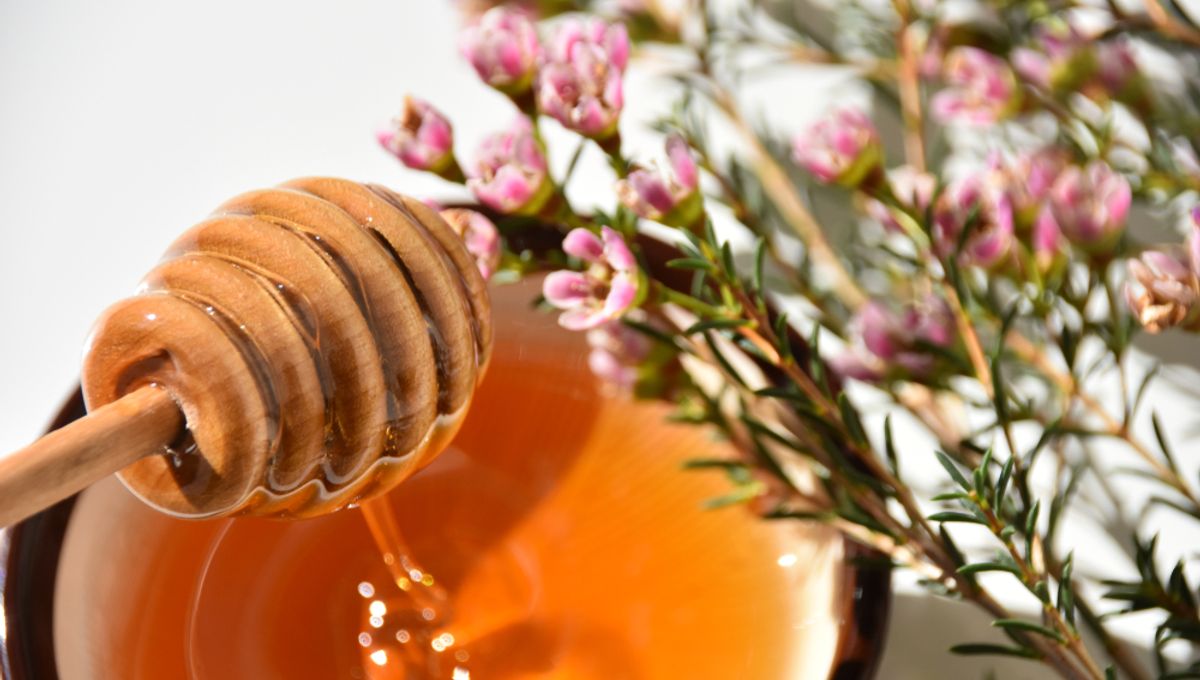
Scientists have found that pairing mānuka honey with a widely used antibiotic could potentially prove to be a useful treatment for a fiendishly tough-to-treat lung infection. It’s only been tested in a petri dish so far, but it’s yet another demonstration of mānuka honey’s reported antibacterial potential.
The researchers gathered samples of the bacteria Mycobacterium abscessus from 16 patients with cystic fibrosis. They then tested the antibiotic amikacin combined with mānuka honey in the lab to discover what dosage was required to kill the bacteria.
As reported in the journal Microbiology, they found that the antibiotic was able to kill the bacteria at a much lower dose when paired with mānuka honey.
The typical dosage of amikacin usually used on a patient to kill a Mycobacterium abscessus infection is 16 micrograms per milliliter. However, when combined with mānuka honey, just 2 micrograms per milliliter of amikacin was required.
Mycobacterium abscessus is a distant relative of the bacteria that cause leprosy and tuberculosis. It’s notoriously tough to treat because it’s highly drug-resistant. Currently, patients are given a cocktail of antibiotics. It’s particularly nasty for patients with cystic fibrosis, for whom it’s often considered a chronic incurable disease.
“By combining a totally natural ingredient such as manuka honey with amikacin, one of the most important yet toxic drugs used for treating Mycobacterium abscessus, we have found a way to potentially kill off these bacteria with eight times less drug than before,” said Dr Jonathan Cox, study author and senior lecturer in microbiology at Aston University, in a statement.
“This has the potential to significantly reduce amikacin-associated hearing loss and greatly improve the quality of life of so many patients – particularly those with cystic fibrosis.”
Mānuka honey is produced from the nectar of the mānuka tree, which grows naturally throughout southeastern Australia and New Zealand. It’s been used in traditional medicine for centuries and is often touted to have unique healing properties that other forms of honey do not, although some of the claims have not been scientifically verified.
It is clear that honey does possess broad antibacterial properties that can help heal wounds. Previous research has found that antibiotics – such as oxacillin, rifampicin, tetracycline, and colistin – have an increased potency against methicillin-resistant Staphylococcus aureus (MRSA) when used in combo with mānuka honey
While the new study further bolsters these claims, it’s worth noting this has only been demonstrated in a petri dish, so it’s uncertain whether a similar effect will be seen in living, breathing humans. Nevertheless, the researchers remain confident that their findings could hold some promise for infamously tough drug-resistant infections.
“So far treatment of Mycobacterium abscessus pulmonary infections can be problematic due to its drug-resistant nature. The variety of antibiotics required to combat infection result in severe side effects,” said lead study author Victoria Nolan.
“However, the use of this potential treatment combining amikacin and manuka honey shows great promise as an improved therapy for these terrible pulmonary infections.”
Source Link: Mānuka Honey May Help Combat Drug-Resistant Lung Infection